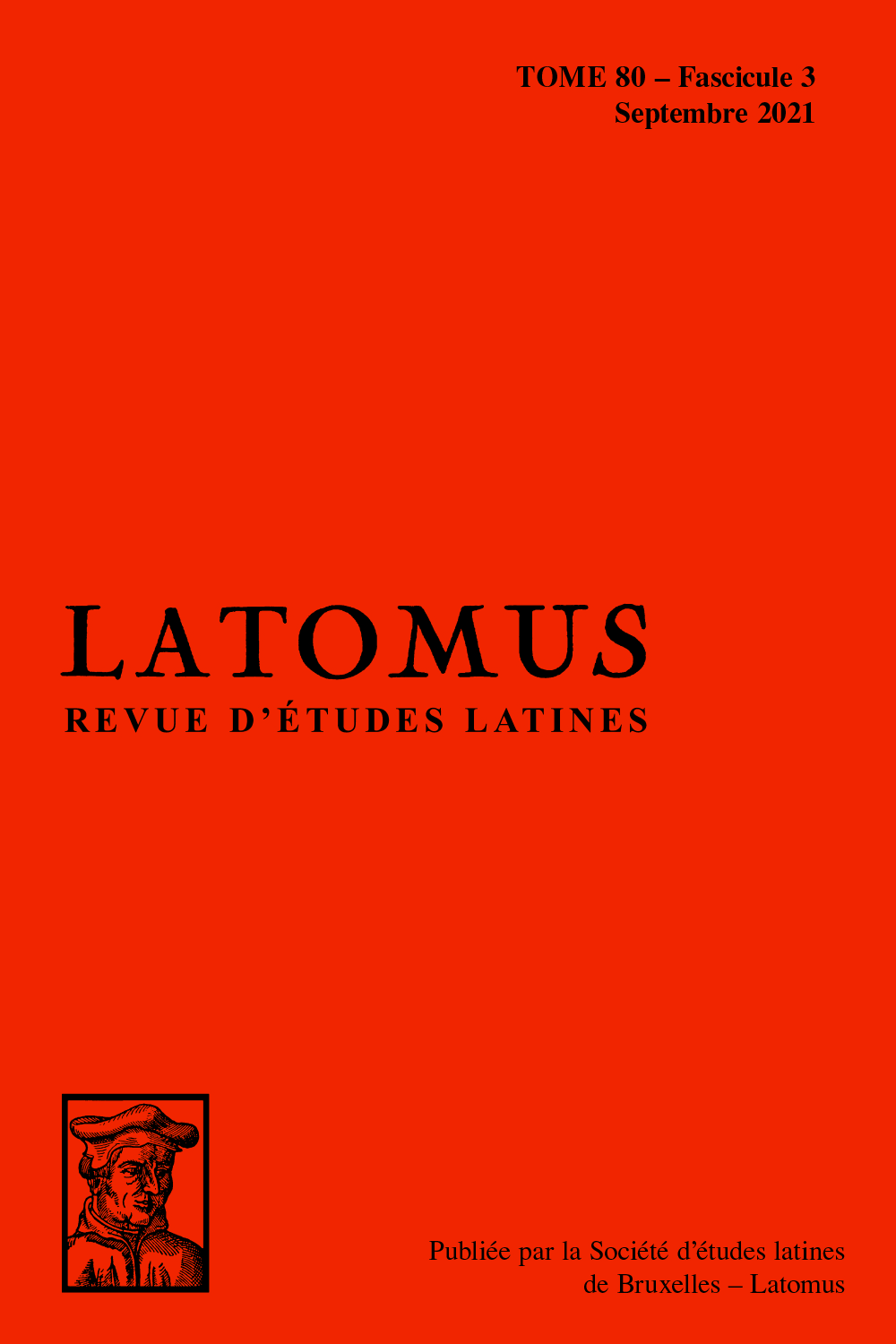 previous article in this issue previous article in this issue | next article in this issue  |

Preview first page |
Document Details : Title: Διάλεκτος, dialectus, dialect Subtitle: A Word's Curious Journey from Ancient Greek to (Neo-)Latin and Beyond Author(s): VAN ROOY, Raf Journal: Latomus Volume: 78 Issue: 3 Date: 2019 Pages: 733-770 DOI: 10.2143/LAT.78.3.3287369 Abstract : The present paper constitutes a guide through the complex history of the word διάλεκτος/dialectus/dialect from Greek antiquity up to the early modern era with a focus on the latter period and on its fate as a (Neo-)Latin word. It demonstrates that the term evolved from a highly polysemous word in Ancient Greek to a (Neo-)Latin (and, later on, vernacular) term expressing various linguistic meanings, among which the interpretation ‘regional variety of a language’ rose to prominence. The contribution moreover argues that the Renaissance Latinization of the word is largely due to a twist of fate in the textual transmission of Quint., Inst. 1.5.29 and sketches how the term dialectus, mistakenly regarded as an ‘approved’ ancient Latin word, spread across the Republic of Letters. In addition, I discuss the learned and polysemous status of Latin dialectus (and its vernacular counterparts) throughout the early modern era. To conclude, I spell out the history of a number of key early modern derivations and compositions in which the word figures, principally dialectologia and subdialectus. |
|


